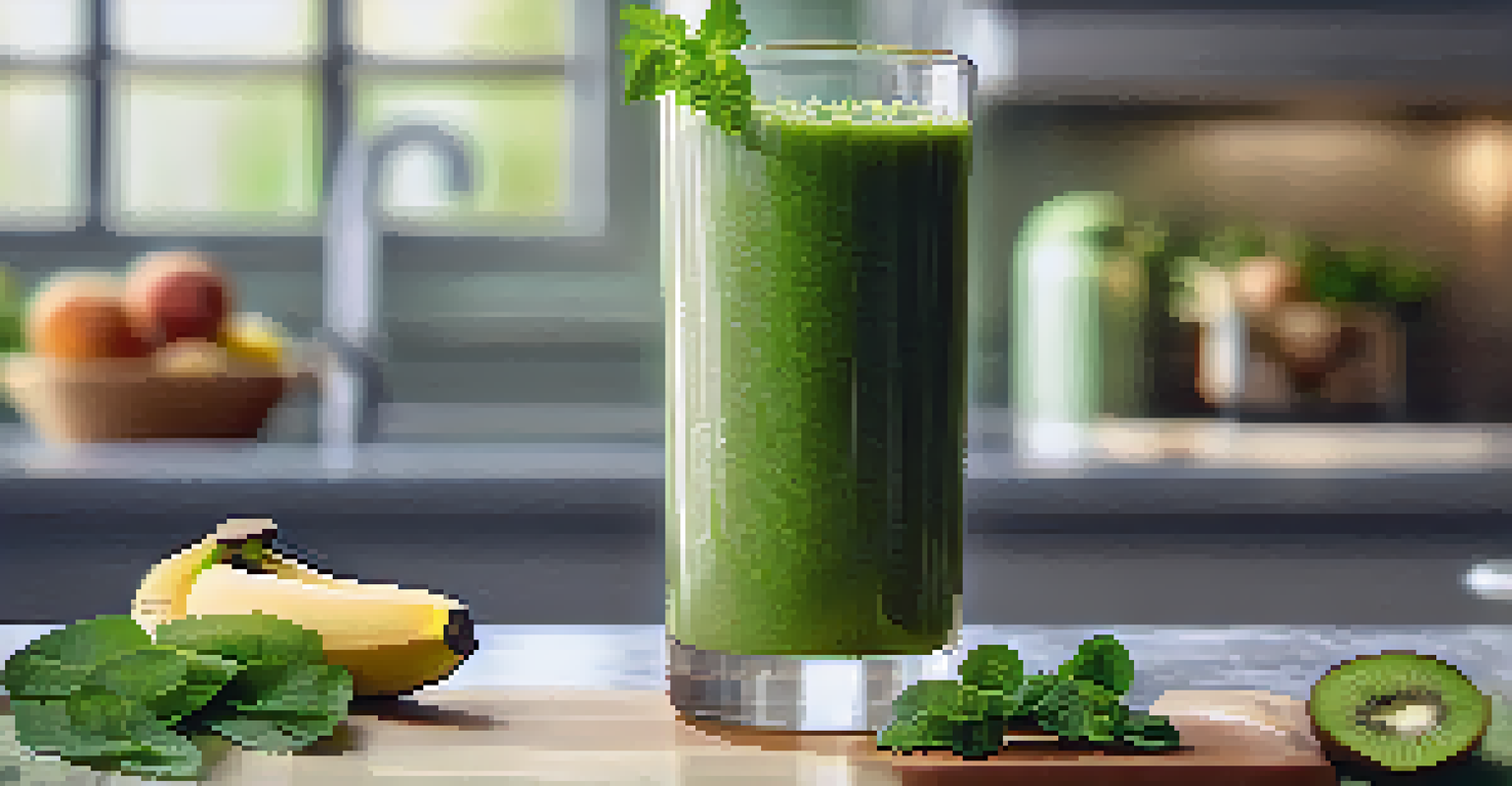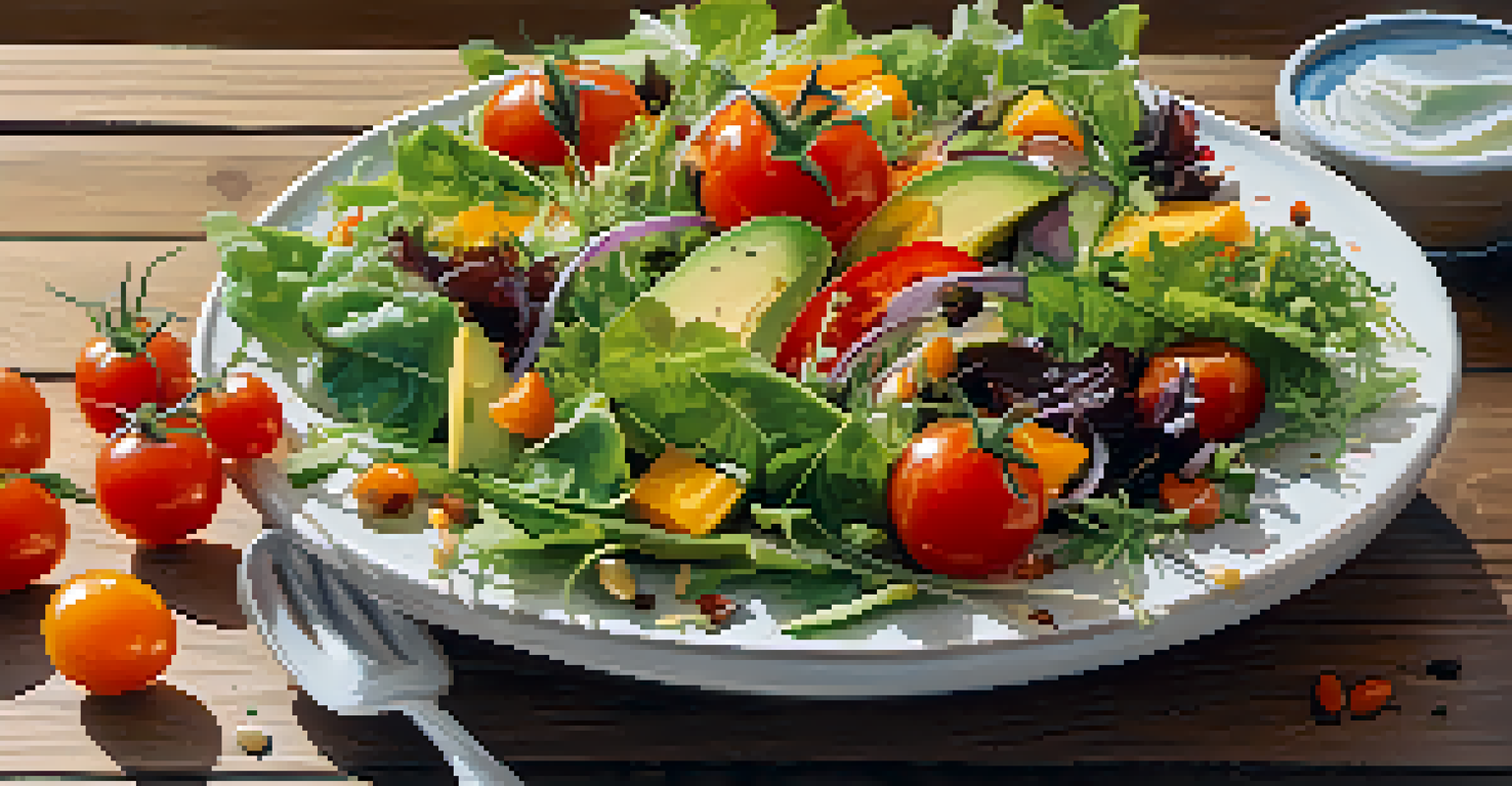Benefits of Raw Food Diet: A Focus on Nutrient Density

What is a Raw Food Diet and Its Core Principles?
A raw food diet primarily consists of uncooked, unprocessed foods, focusing on fruits, vegetables, nuts, and seeds. The idea is that cooking can diminish the nutritional value of food, so consuming it raw maximizes nutrient intake. Many proponents believe this approach not only preserves vitamins and minerals but also enhances flavors, making meals more vibrant and satisfying.
Let food be thy medicine and medicine be thy food.
In essence, the raw food movement encourages you to reconnect with nature by eating foods in their most natural state. This philosophy aligns with the belief that our bodies thrive on whole, nutrient-rich foods. By eliminating processed ingredients, you may find a clearer understanding of what you’re putting into your body.
While it may sound restrictive at first, a raw food diet can be incredibly diverse. Think colorful salads, smoothies bursting with fruits, and crunchy vegetable snacks. This variety not only keeps meals interesting but also ensures a broad spectrum of nutrients.
Nutrient Density: What Does It Mean?
Nutrient density refers to the amount of essential nutrients in a given amount of food relative to its calorie content. Foods that are nutrient-dense provide a higher amount of vitamins, minerals, and other beneficial compounds without being high in calories. This is particularly important in a world where many people consume empty calories that offer little nutritional value.

Incorporating nutrient-dense foods into your diet can help you meet your daily nutritional needs without overeating. For instance, a serving of spinach is low in calories but packed with iron, calcium, and vitamins A and C. In contrast, processed snacks may be calorie-dense but lack essential nutrients.
Raw Food Diet Enhances Nutrient Intake
Eating uncooked, unprocessed foods maximizes nutrient absorption, promoting better health.
By focusing on nutrient density, a raw food diet allows you to enjoy satisfying meals that nourish your body. This approach helps you feel full and energized while also promoting overall health and wellbeing.
Boosting Energy Levels with Raw Foods
One of the most appealing benefits of a raw food diet is the boost in energy levels many people experience. Raw foods are typically high in water content, which helps keep you hydrated and energized throughout the day. When you consume fresh fruits and vegetables, you’re also fueling your body with natural sugars that provide sustained energy.
You are what you eat, so don’t be fast, cheap, easy, or fake.
Additionally, raw foods are often rich in enzymes that aid digestion and enhance nutrient absorption. This means your body can utilize the energy from these foods more efficiently. Imagine feeling lighter and more energized after meals rather than sluggish and weighed down—this is a common experience for those adopting a raw food lifestyle.
As a bonus, the increased energy can translate into improved physical activity and mental clarity. When you feel good, you’re more likely to engage in activities that promote further well-being.
Weight Management and Raw Food Diets
Many people turn to a raw food diet as a tool for weight management. Since raw foods are often low in calories yet high in fiber, they can help you feel full longer, reducing the likelihood of overeating. This makes it easier to maintain a healthy weight without feeling deprived or hungry.
Incorporating more raw foods into your meals can also encourage healthier eating habits overall. For instance, swapping out processed snacks for raw veggies and hummus can satisfy cravings without the added calories. Over time, this shift can lead to significant changes in your weight and health.
Boost Energy with Raw Foods
The high water content and natural sugars in raw foods provide sustained energy and improved hydration.
Moreover, a raw food diet encourages mindfulness around food choices. By focusing on whole, fresh ingredients, you may become more aware of what you’re eating, making it easier to make healthier decisions.
Enhancing Digestion Through Raw Foods
Raw foods are typically high in dietary fiber, which is essential for healthy digestion. Fiber helps regulate bowel movements and can prevent issues like constipation, promoting a healthy gut. When you consume more fruits and vegetables, you're naturally increasing your fiber intake, which supports digestive health.
In addition to fiber, raw foods often contain living enzymes that aid in breaking down food. Cooking can destroy some of these beneficial enzymes, making it harder for your body to digest cooked foods. By consuming raw foods, you're giving your digestive system a helping hand.
Many people report improved digestion after transitioning to a raw food diet. This can lead to less bloating, more regular bowel movements, and an overall sense of well-being.
Boosting Immune Function with Raw Foods
A diet rich in raw foods can also enhance your immune system. Fresh fruits and vegetables are loaded with vitamins, minerals, and antioxidants that support immune health. For example, citrus fruits like oranges and grapefruits are excellent sources of vitamin C, which is known for its immune-boosting properties.
Moreover, the high water content in raw foods helps to flush out toxins and keep your body hydrated, further supporting immune function. Staying well-hydrated is crucial for maintaining optimal health, especially when your body is fighting off illness.
Support Weight Management Naturally
Raw foods are low in calories but high in fiber, helping you feel full and encouraging healthier eating habits.
By incorporating a variety of raw foods into your diet, you’re not just nourishing your body; you’re also fortifying it against potential illnesses. This proactive approach to health can lead to fewer sick days and a greater sense of vitality.
Building a Sustainable Raw Food Lifestyle
Transitioning to a raw food diet can seem daunting, but it can be a sustainable lifestyle change with the right approach. Start by incorporating more raw foods into your meals gradually. You might begin with a raw breakfast smoothie or a vibrant salad for lunch, allowing your taste buds to adapt over time.
Additionally, exploring new recipes and experimenting with different raw food combinations can keep your meals exciting. Think outside the box—try spiralizing zucchini for pasta or creating a raw vegan dessert using nuts and dates. This creativity can make your journey enjoyable rather than restrictive.

Lastly, connecting with communities or groups focused on raw food can provide support and inspiration. Sharing experiences and recipes can help you stay motivated as you embrace this nutrient-dense lifestyle.